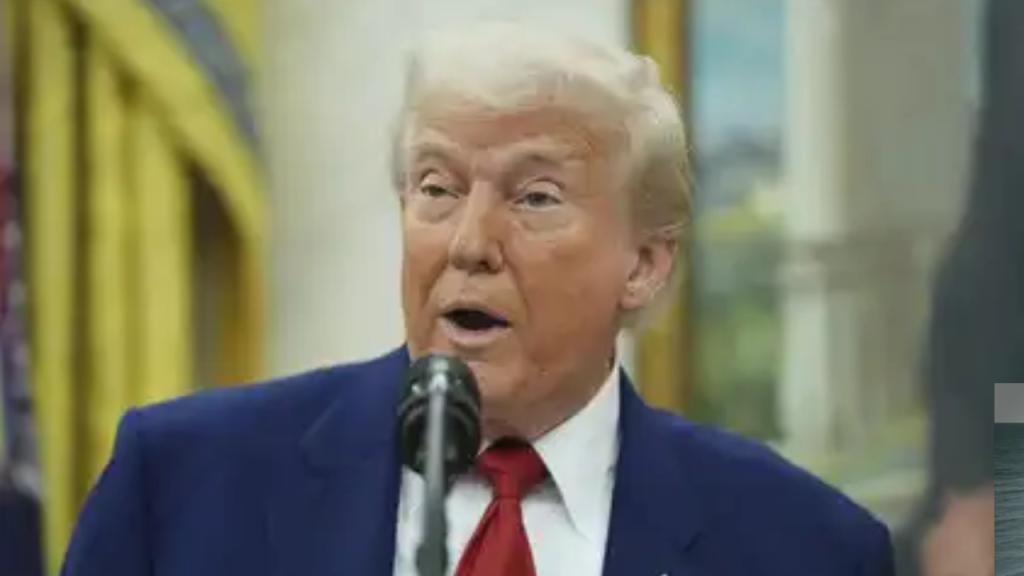
Former President Donald Trump has made a bold statement, warning that the United States’ economic future hinges on the continuation of his controversial tariff policies. In a recent speech, Trump emphasized that without the ability to implement his sweeping tariffs, the U.S. has “no chance of economic survival.” This remarks come in the wake of a significant legal ruling challenging the administration’s trade measures, which have been a cornerstone of Trump’s economic policy.
Background on the Tariffs
The tariffs, part of Trump’s broader trade agenda, were introduced with the intention of addressing what he perceives as unfair trading practices by foreign nations, particularly China and the European Union. The president’s administration framed the tariffs as part of a “Liberation Day” initiative, announced in April 2025, aimed at reducing the U.S. trade deficit and revitalizing American manufacturing.
However, Trump’s aggressive approach to tariffs has faced considerable opposition, not just from foreign governments but also from legal experts and economic analysts within the U.S. The tariffs were implemented under the International Emergency Economic Powers Act (IEEPA), which grants the president the authority to take drastic economic actions during national emergencies.
Court Ruling on the Tariffs
In late May 2025, a federal trade court ruled that Trump overstepped his authority by imposing the tariffs without proper legislative approval. The court decision claimed that the president’s actions were unlawful under the provisions of the IEEPA. This ruling had immediate implications for U.S. trade policy, as it threatened to dramatically reduce the overall tariff rate from the current 15% to a mere 6%, a move that critics argue would severely weaken the administration’s position in ongoing international trade negotiations.
In response to this setback, the Trump administration swiftly filed an appeal, requesting that the U.S. Court of Appeals pause the ruling. The administration argues that halting the tariffs would undermine the administration’s efforts to negotiate better trade deals and harm the U.S. economy by disrupting supply chains and inflating prices.
Economic Implications of the Tariffs
While the Trump administration defends its tariff policies as necessary for the country’s economic survival, experts have raised concerns over the long-term effects of such measures. The Organization for Economic Cooperation and Development (OECD) recently downgraded its U.S. growth forecast for 2025, lowering it from 2.8% to 1.6%. The OECD cited the tariffs as a primary factor contributing to slower growth, with many economists warning that the tariffs could cause inflationary pressures and disrupt global supply chains.
Critics also argue that the tariffs disproportionately impact U.S. consumers, raising the cost of imported goods and potentially reducing purchasing power. These concerns have caused a decline in investor confidence, as market analysts remain uncertain about the future direction of U.S. trade policy.
Political Backlash and Public Perception
The legal challenges to Trump’s tariffs have sparked a broader debate about the president’s approach to international trade and his willingness to push the limits of executive power. Many have questioned whether Trump’s aggressive trade measures are worth the potential economic costs, while others argue that the tariffs are necessary to ensure that the U.S. stands up to what Trump has repeatedly described as “unfair trade practices” by other nations.
There is also a growing sense of frustration among lawmakers, some of whom have expressed concerns about the long-term consequences of Trump’s tariffs on the global stage. At the same time, the public’s perception of the tariffs remains divided. While some voters continue to support Trump’s stance on protecting U.S. industry, others fear that the tariffs will lead to higher costs and reduced economic growth.
The Path Forward: Trade Negotiations and Future Tariff Policies
As the legal battle over the tariffs continues, Trump’s administration is pushing forward with its efforts to secure new trade deals. The U.S. is currently in the process of negotiating with several countries, and Trump’s team is working to finalize agreements that will, in their view, ensure more favorable terms for U.S. workers and businesses.
However, the legal challenges and the ongoing debate about the tariffs’ impact on the economy have created a climate of uncertainty, particularly for industries that rely heavily on international trade. This uncertainty has prompted some companies to reconsider their investment strategies, while others are looking to diversify their supply chains to mitigate potential risks associated with the tariffs.
